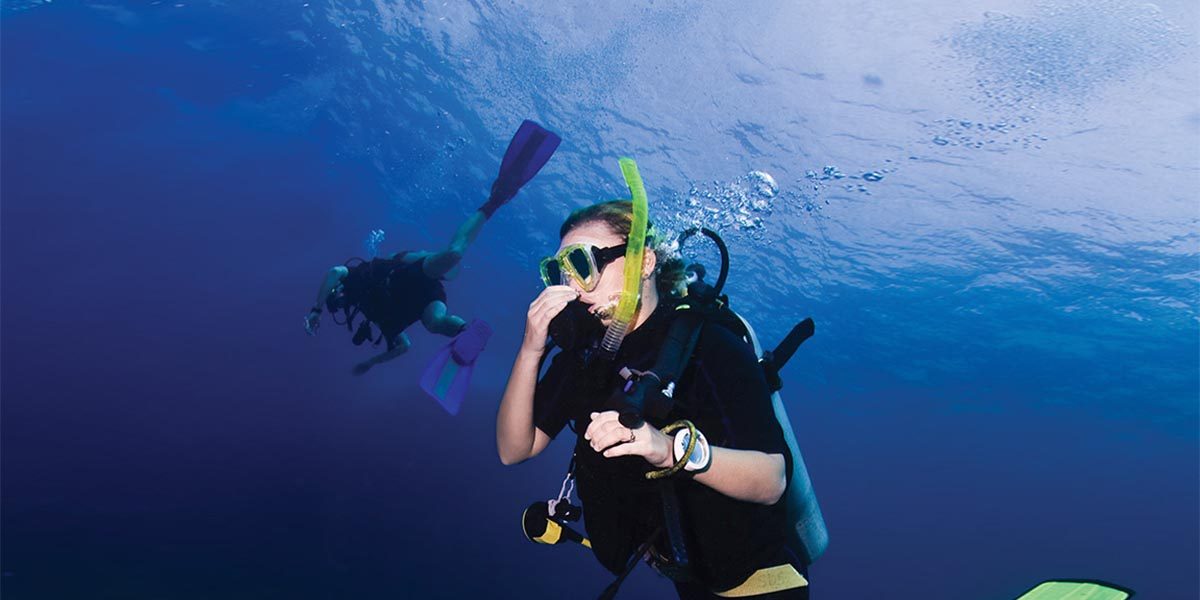altsaint
Registered
Hi - newbie Scubaboard member here, but not newbie diver. I’m 61 and have been scuba or freediving for all but the first eight years of this. Up until 9 months ago, the only issue I have been having has been the onset of age-related hearing loss, and gradual worsening of Eustachian Tube Dysfunction. The latter impacts my equalisations in that it takes a bit more pressure on descent to open my right ET.
Ten months ago I had an RHS reverse ear block when ascending on a scuba dive. The eardrum ruptured. Examination showed that the perforation was very small and it healed within a month, although I stopped diving until last month.
When I started diving again, after several visits to an ENT specialist / GP / audiologist, the advice was to continue diving but use a steroid spray (Mometasone Furoate) as a precaution. I did this, and also took more care to equalise more regularly on descent. Everything was fine for the first day of three dives to about 25 metres. On the first dive of the 2nd day I noticed a slight discomfort in my right ear after a back-roll from the boat, but equalisations to 20m were fine. After a few minutes remaining at this depth, I felt a movement within the ear, and a sensation of cold water ingress. A gentle equalisation resulted in air exiting my right ear - I had again perforated it, but this time without an obvious cause. A GP investigation revealed that the perforation must again have been small, as 11 days after the event he could not locate it.
I must conclude that my right eardrum has a weakness and I need to dive differently to avoid further ruptures.
What I am looking for now, is an understanding of what other divers do, who have had a similar experience, in terms of limiting no. of dives / depths / durations or any other mitigation. I’m sure some will say, “see your ENT specialist”, but I have already done this and both I have consulted have not been able to relate any advice to the practice of scuba diving. I have also looked (in the UK where I am based) for a combined ENT specialist / diving doctor, but not found such a person. So I am therefore wanting to know the practical experience of others. I have looked at similar threads here, but if I have missed one where someone has had the same question answered, I’d be grateful for a link! I also put a lot of value on the advice @doctormike has given on similar threads, so if he has time to comment that would be well-received too.
[Specific questions added on 09 Apr 23]:
Thanks in advance.
Ten months ago I had an RHS reverse ear block when ascending on a scuba dive. The eardrum ruptured. Examination showed that the perforation was very small and it healed within a month, although I stopped diving until last month.
When I started diving again, after several visits to an ENT specialist / GP / audiologist, the advice was to continue diving but use a steroid spray (Mometasone Furoate) as a precaution. I did this, and also took more care to equalise more regularly on descent. Everything was fine for the first day of three dives to about 25 metres. On the first dive of the 2nd day I noticed a slight discomfort in my right ear after a back-roll from the boat, but equalisations to 20m were fine. After a few minutes remaining at this depth, I felt a movement within the ear, and a sensation of cold water ingress. A gentle equalisation resulted in air exiting my right ear - I had again perforated it, but this time without an obvious cause. A GP investigation revealed that the perforation must again have been small, as 11 days after the event he could not locate it.
I must conclude that my right eardrum has a weakness and I need to dive differently to avoid further ruptures.
What I am looking for now, is an understanding of what other divers do, who have had a similar experience, in terms of limiting no. of dives / depths / durations or any other mitigation. I’m sure some will say, “see your ENT specialist”, but I have already done this and both I have consulted have not been able to relate any advice to the practice of scuba diving. I have also looked (in the UK where I am based) for a combined ENT specialist / diving doctor, but not found such a person. So I am therefore wanting to know the practical experience of others. I have looked at similar threads here, but if I have missed one where someone has had the same question answered, I’d be grateful for a link! I also put a lot of value on the advice @doctormike has given on similar threads, so if he has time to comment that would be well-received too.
[Specific questions added on 09 Apr 23]:
- Do frequent repetitive equalisations stress the eardrum enough to the point that a previously ruptured eardrum may again rupture?
- Has anyone experienced an eardrum perforation, and then made modifications to the way they dive that have prevented it happening again?
Thanks in advance.




